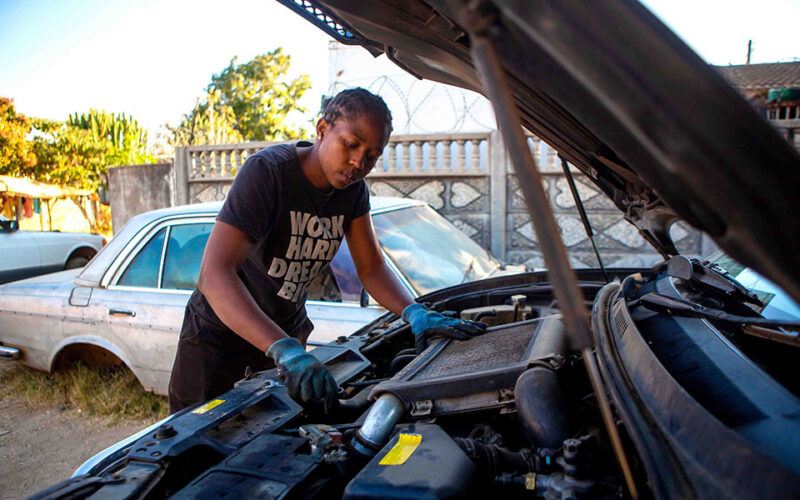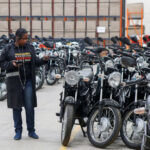TAFADZWA UFUMELI
THE Nissan SUV in the workshop looks like it took several days to be worked on. It’s finally time to start it up and return it to the owner. And so Memory Bere, carrying a battery to get it going, walks over. She’s wearing a black shirt inscribed “Work Hard, Dream Big”. Selecting a spanner, she installs the battery. It doesn’t have enough power to start the car.
“Bring me another battery with power, including jump-starting cables,” comes the startlingly loud shout from under the hood.
A second battery later, the engine finally catches with a roar, blowing out no little smoke before settling to a more sedate rhythm and then Bere is walking away from the vehicle. She looks challengingly up at her fellow – male – mechanics as she walks, a big grin on her face.
“I developed the love of cars at a tender age as I used to help out my father,” Bere offers in explanation, “and when my father would be fixing his car, he would call me to hand him different tools to use”, she said, speaking in the workshop at her home in Chitungwiza, a high-density suburb of Harare.
From that experience, Memory took a shine to mechanical design and promised to pursue it as a career. She was lucky; her parents supported her decision after realising just how much she enjoyed fixing things.
Now, the short-haired mechanic paints a picture of a mechanic whose passion it is to fix broken cars. Her workshop is littered with “dead” Mercedes Benz vehicles waiting to be brought back to life. There is a constant sound of car engines being revved, with each completed task bringing that same smile to the workshop owners’ face. She clearly loves this job.
Bere is now prospering in a male-dominated profession and is not only able to take care of herself but is also able to take care of her relatives. It has not all been plain sailing to get to this point, though.
“I enrolled at a college and I studied mechanics. Unfortunately, after completion, I couldn’t get a job. I think because of my gender, because, since mechanics is dominated by men, many people could not take me seriously as they were doubting me,” Bere said.
“I got a job in South Africa and the interviewer there that happened to be a white man, said I have never met a female mechanic yet and you are the first for me, he was so impressed with me and he taught me and groomed me to be a better mechanic,” she added.
From the workshop she opened after moving back to Harare, Bere today services and fixes both petroleum and diesel vehicles. Her goal is to open a studio where she will be able to show young women how to fix vehicles. She’d also like to visit schools and empower young girls to take on careers currently dominated by men and to not be scared to set up a big establishment.
Globally, women make up under 25 percent of the automotive workforce and in most countries makeup well under 20 percent. Only 16 women (8 percent) were senior executives of the 20 top auto manufacturers as recently as 2018.
While Bere is not scared to push the “glass ceiling”, she is faced with a problem.
“My biggest challenge is I don’t (have) a female mechanic mentor who I can look up to and guide me accordingly in this craft because as a woman I expected to also find a woman mechanic in my country. But so far I haven’t found one. Also at the mechanics’ school I attended, I was the only female in that class,” she explained.
For now, however, her unique position does offer a benefit: woman drivers, she says, feel happier passing on their vehicles to a female mechanic. However, she would still rather have more female company.
[origincode_photo_gallery_wp id=”47″]














